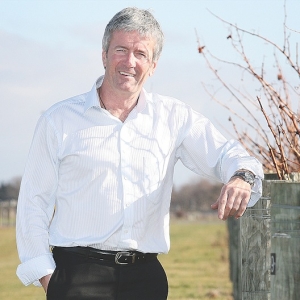The authority should be separate from MPI and “not be compromised by multiple objectives in the Ministry for Primary Industries,” he says.
O’Connor called on Food Safety Minister Nikki Kaye to improve the system after an investigation by Metro claimed that seven meat consignments were refused entry to the US market because they did not meet the import requirement of zero faecal contamination.
The article also claimed that the change to self-regulation, using company-employed meat inspectors in several sites, had resulted failures in the system, including poorly trained inspectors unable to do the job properly and financial incentives not to slow down production.
O’Connor has copies of letters from Food and Water Watch to the US Department of Agriculture which refers mainly to Australian products, but also mentions New Zealand meat imports. The latest letter in January 2013 says the “number of imported meat rejections of New Zealand products has increased in recent months” and asks what New Zealand is doing about it.
“What concerns me is we have a senior person at MPI denying it, saying it’s a myth that any of these shipments have been locked out, then finally an admission. My concern is that MPI had their head in their sand over the whole situation,” O’Connor told Rural News.
A report by AsureQuality, who as a contractor trained the replacement meat inspectors, raised concerns during the trial process but these were glossed over, he says. “The continuation of it without major reform will inevitably lead to major risks of contamination in the meat industry.”
O’Connor says there’s an implication faecal contamination is not considered a food safety issue, which is of major concern. Faecal contamination should be clearly indicated as a food safety issue by the minister, he says. The demarcation of processing-line responsibilities of company workers and AsureQuality vets needs to clarified.
“We need to be reassured there’s adequate inspection taking place regardless of the meat works or regardless of who is doing the inspection. MPI and the minister have to front up to the level of contamination identified by our different trading partners.”
Rural News asked Nikki Kaye’s office for comment, but was referred to Scott Gallacher, deputy director-general standards, Ministry for Primary Industries. He says the inspections are in line with international Codex standards and domestic legislation.
“We are confident the alternative meat inspection system meets MPI’s strict requirements for ensuring meat is safe to consume.”
The alternative meat inspection programme follows successful trial results and acceptance by the United States of America (USA) and European Union (EU), Gallacher says. Officials from the EU visited New Zealand in June 2013 to evaluate the system and it met their expectations. The USDA’s food safety inspection service evaluated the system’s performance data in September 2013 and commented favourably.
Company inspectors are trained and assessed by AsureQuality and have an NZQA level-four qualification. MPI had been informed by the USDA’s food safety and inspection service of seven port of entry (border) issues between 2011 and 2012, where containers holding 38 tonnes of meat products failed to meet its zero tolerance standard. No further port of entry issues have been raised by the USDA food safety and inspection service since that time.
“Importantly, none of the port of entry rejections were associated with any of the meat supplied to that market under the alternative meat inspection system, since the inception of the system in 2011,” Gallacher says.

















